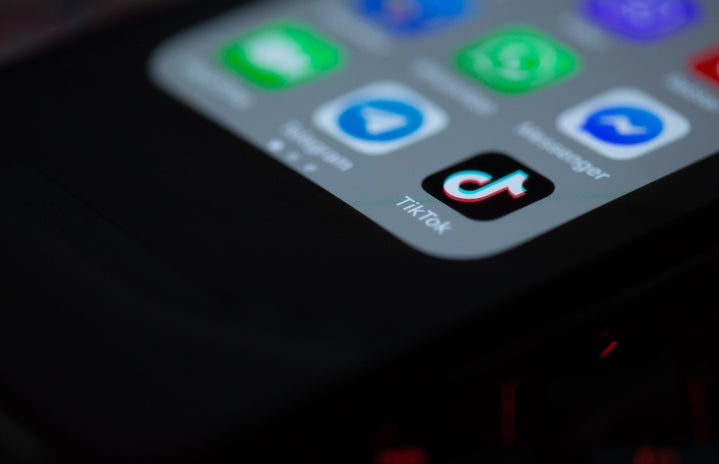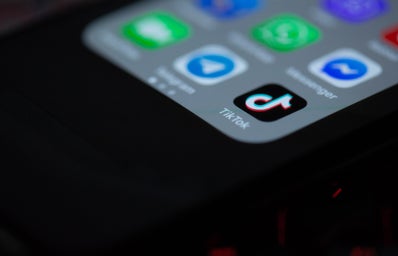A 16-year-old girl looks down at her phone with tears welling up in her eyes. A video that was posted to the internet with good intentions has backfired when people took her comments out of context. A hashtag on Twitter holds hundreds of thousands of hate comments. Her direct messages are full of explicit language from unknown strangers. Her pupils skip from one nasty comment to another ander finger hovers over the power button, but her willpower is not strong enough to press it. As much as the hate is hurting her, she can’t stop scrolling. Comments evolve into hurt and hurt evolves into self-destructive thoughts. Thoughts should never evolve into actions, but unfortunately they sometimes do. At 16 years-\ old, this was Charli D’Amelio’s reality. A YouTube video showed her eating dinner with a friend and family was uploaded to her channel. In the video her 19-year-old sister, Dixie, was instructed by their personal chef to eat a snail, to which she spit out. Later in the video, Charli said that it would be “cool” if she hit 100 million followers on the same day she hit a million a year prior. Within a few hours the D’Amelio sisters were trending on Twitter and in the end Charli D’Amelio lost 2.8 million followers on Tik Tok. A day later the 16-year-old social media star went live on her Instagram, apologizing to those she may have offended with her comments. The D’Amelio’s were a victim of what is now commonly known as cancel culture and it’s a societal trend that needs to end.
Cancel Culture, as the New York Post states, “is the phenomenon of “canceling” people, brands, and even shows and movies due to what some consider to be offensive or problematic”. The civilians of the internet take the gavel of justice in their digital hands and bring “equity” to people who they feel deserve it. One would think that holding public figures accountable for racist, rude, or homophobic remarks or actions is a positive thing for our society. However, knowing the internet, we should know by now how imperfect this system could be.
Cancel culture allows the gavel to hit the sound block even before the defendant in question can utter a word. A single video, a single article, or even an accusation with no real foundation can ruin your reputation and career. Furthermore, if enough of the internet already hates you, you might ruin your reputation Within a blink of an eye, a tsunami of tweets and articles covering the scandal flood the internet. From then, it just snowballs into a blizzard of uncontrollable hate and criticism. Many people who choose to take part in cancel culture can always be put into one three groups of groups: those who already have a negative bias towards the person or organization in question, those who enjoy breaking people down just for fun, or those who have the right intentions when holding someone accountable but fall naive to the bandwagon. These unreliable jurors of the internet are those who choose who is guilty and who is innocent.
Speaking of unreliable jurors, the convictions internet users make are just as bad. Most of the time it’s the people who do the worst who get the least justice. Tony Lopez, a 22-year-old TikTok star has been proven to solicit and send nude photos and videos to and from underage girls. Twitter, Snapchat, and social activists on TikTok alike raced to call to action both Lopez, his associates, his sponsors, and even TikTok itself to hold them accountable for his actions. However, even after an apology was issued and the virtual star claimed to, “make better well-informed decisions,” two months later, another underage girl came forward with more recent and inappropriate messages. And what punishment did Lopez get? A single sponsorship drop. He wasn’t arrested for child pornography, not banned from TikTok, and he lost no followers in the process.
Not only is this justice system selective in its convictions, but it is also selective in its probation appeals. These cancelling’s have happened so many times that apologies written in the iPhone notes app have become commonplace. People are no longer satisfied with a simple, “I’m sorry and I have learned.” In fact, it seems like this toxic culture has evolved into one that doesn’t give room for forgiveness or growth. As these people begin to move on from their life and learn from their mistakes, those who have chosen not to forgive, continue. Every chance they get, they will find a way to bring up the past and use it against the individual. In this situation, no one wins. It can take months if not years for someone to completely repair the person’s reputation.
Many believe that this digital judicial system is essential for the virtual ecosystem we live in today. However, previous scandals have proven that this system is all wrong and in so many ways. So, how do stop this toxic trend before it’s too late while still holding those accountable?
To start off, we need to stop putting public figures on higher pedestals. For us to think that people in the spotlight cannot and have not made mistakes in the past is already setting us up for failure. This is especially true in a world where a 15-year-old nobody could become one of the most followed social media influencers in the world within a year. And though public figures do need to be held accountable, we need to understand that death threats and hollow hate messages are not going to change anything. Instead, we need to bring attention to the companies that continue to support this individual and let them decide how to handle it. If you choose not to support them anymore, that is your choice and your view shouldn’t be forced on only else. Finally, we need to learn that words hurt, and though it might seem counterintuitive, there is another person on the other side of the screen reading every single comment. Time and time again when someone is proven innocent after being accused of being guilty, the internet falls on its knees and promises that they will never do it again. Yet, when a new scandal arises, the cycle of shock, tweets, misjudgment, and forgiveness begin once again.
“It does not matter who you are… [death threats & hate] are gonna stick with you…I’m pretty sure if [celebrities] were getting hundreds of messages telling them they should not be alive and graphic details about how they should k*ll themselves, they would be pretty upset too,” Charli D’Amelio said in the latest episode of her podcast, 2 Chix. So why should we confide and continue to participate in a culture that ridicules a 16-year-old for a non-offensive comment and lets a serial pedophile run free? We need to ask ourselves, when will our eagerness to watch someone fall cost them the price of their life? It just takes one comment to turn self-destructive thoughts into action. I mean, who are we, as unreliable jurors, to give someone a death sentence?


